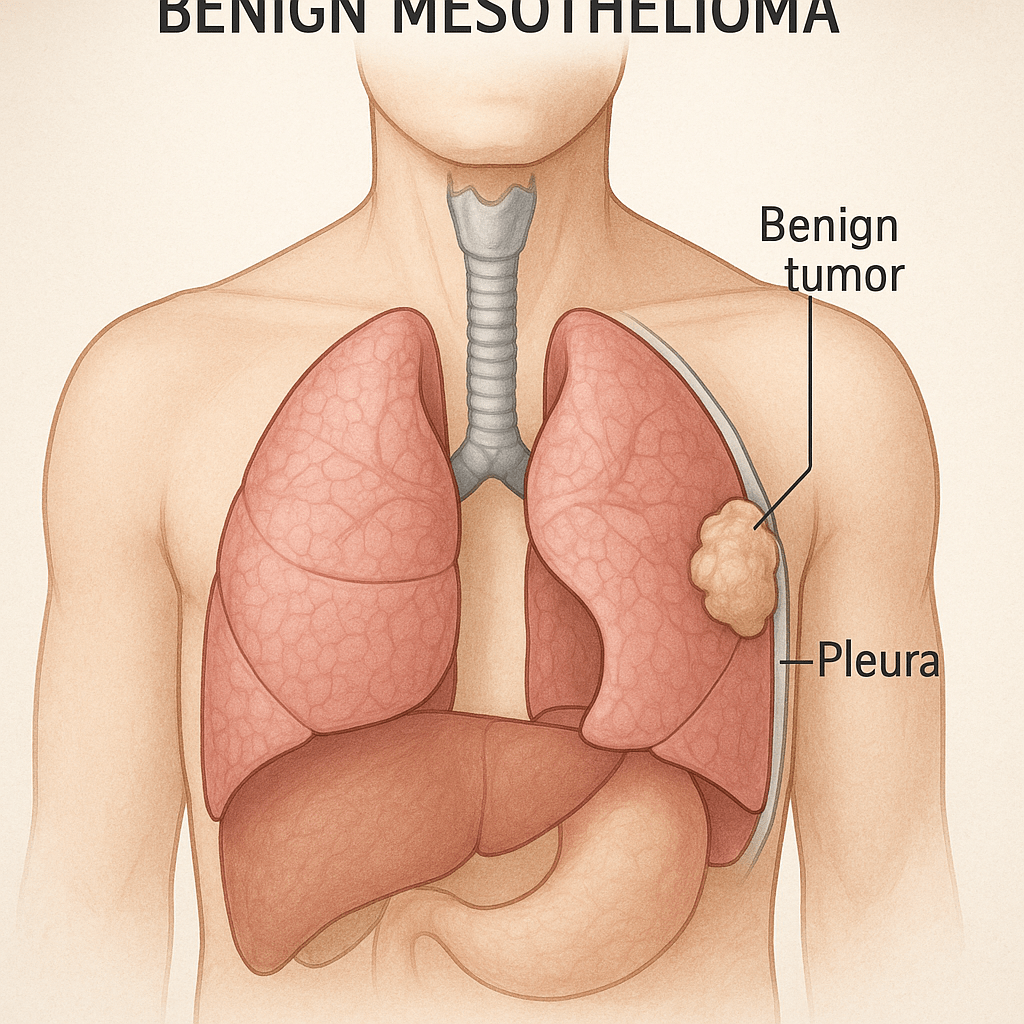Benign Mesothelioma is a rare, non-cancerous tumor originating from the mesothelial cells that form the protective linings (serosa) of the body’s internal organs—most commonly the pleura (lungs), peritoneum (abdomen), or pericardium (heart). Unlike malignant mesothelioma, which is aggressive and associated with asbestos exposure, benign mesothelioma is typically slow-growing, well-circumscribed, and lacks metastatic potential. It is often discovered incidentally during imaging or surgery and may present with symptoms such as chest pain, dyspnea, or abdominal discomfort depending on its location.
Pathologically, benign mesothelioma is characterized by a single mass or multiple nodules composed of uniform mesothelial cells without cytologic atypia or invasive behavior. Surgical resection is the standard treatment, and recurrence is uncommon but may occur in rare variants such as Multicystic Peritoneal Mesothelioma or Adenomatoid Tumors.
Benign mesothelioma is not considered a precursor to malignant mesothelioma, and its prognosis is excellent with proper diagnosis and management. However, differentiation from low-grade malignancies can be challenging, often requiring immunohistochemistry and long-term clinical follow-up.
